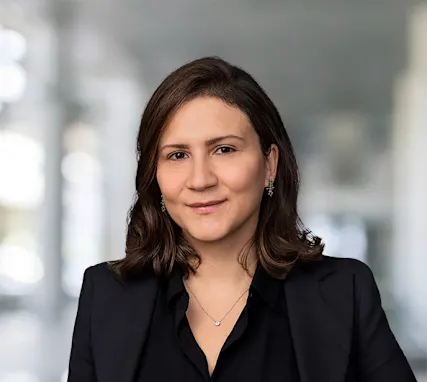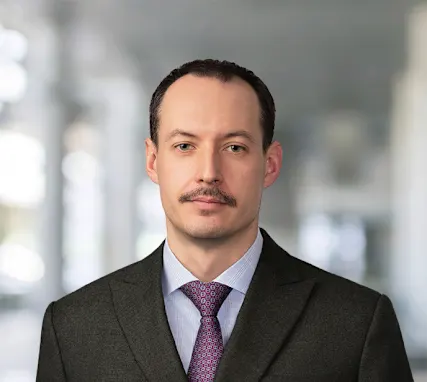Authors
Authors
Article 58-1, inserted into Law No. 71-1130 on 31 December 1971, establishes a general principle of in rem protection, attached to the act itself rather than the individual. It states that: “Legal advice prepared by an in-house counsel, or at their request and under their supervision, by a member of their team placed under their authority, for the benefit of their employer are confidential” (art. 58-1 I).
Several clarifications are provided:
- First and foremost, the scope of application is clearly defined. Only civil, commercial, and administrative matters are covered by legal privilege, excluding criminal and tax matters (art. 58-1 III).
- This principle of privilege is conditional. The text lists a set of cumulative conditions (art. 58-1 III) to claim privilege. In order to be covered by privilege, legal advice must be provided by (i) in-house counsel or a member of their team placed under their authority, holding a master’s degree in law or an equivalent French or foreign diploma, (ii) who can demonstrate compliance with initial and continuing legal education in professional ethics.
- The relevant advice must explicitly mention “confidentiel – consultation juridique juriste d’entreprise” (privileged – in-house counsel legal advice).
- Fraudulently affixing this wording to a document that does not meet the required conditions is punishable by up to three years’ imprisonment and a €45,000 fine (art. 58-1 II).
- The covered advice must be precisely identified, traced in the company’s files, and intended for its management, administrative, or supervisory bodies (art. 58-1 II).
Practical implications
The practical implications are significant, as the documents covered by legal privilege can no longer be seized or subject to an obligation to be handed over to a third party, including a French or foreign administrative authority. This is expected to have substantial repercussions on investigations conducted by these authorities. Furthermore, privileged documents also cannot be invoked against in-house counsel or their employer (art. 58-1 III).
Litigation implications
- In administrative matters, new cases before the liberty and custody judge (JLD) will be forthcoming. Authorized administrative authorities conducting a search will be able to challenge the alleged privilege of certain documents and request that this privilege be lifted, before the JLD, within 15 days (art. 58-1 IV).
- In commercial matters, this new development will inevitably impact summary proceedings and investigative in futurum measures under article 145 of the French Civil Procedure Code (aimed at obtaining evidence before a trial). Indeed, the documents in question will no longer be accessible to the opposing party, which will inevitably lead to disputes arising from alleged claims of privilege. The text provides for the possibility to challenge the alleged privilege of certain documents by an interim application before the president of the jurisdiction that ordered the investigative measure within 15 days following the implementation of said measure (art. 58-1 IV). The litigation surrounding summary proceedings and article 145 requests is expected to experience a new resurgence alongside disputes relating to the lifting of sequestration orders accompanying such article 145 measures.
The new text also aims for increased complementarity between in-house counsel and licenced external lawyers / solicitors. The company will be required to be assisted or represented by an external lawyer in the context of the proceedings challenging or lifting privilege (art. 58-1 V). Furthermore, privilege does not cover negotiations between two parties aimed at reaching a settlement. The privilege which attaches to legal advice excludes settlement discussions therefore, without the protection of “without prejudice” privileged discussions, which are mainly practised in common law countries. As a result, the involvement of an external lawyer, potentially coupled with the signing of a non-disclosure agreement, will retain their relevance and importance in this context.
Intellectual property implications
In intellectual property matters, this new text will have consequences on the so-called saisie-contrefaçon procedure (seizure to collect evidence of infringement), similar to those previously described for in futurum procedures. The saisie-contrefaçon is a procedure that is not governed by ordinary law but is governed by the French Intellectual Property Code (IPC).
When granted through an order upon an ex parte application filed with the president of the competent judicial court, the holder of an intellectual property right is authorised to collect any document or information, within the limits of the order, held either by the author of the alleged infringement or by a third party, in order to establish the origin, scope, and consistency of the infringement.
Confidentiality is not a ground to prevent the seizure of a document, as long as the document is relevant to establishing the infringement. However, safeguards have already been put in place, to ensure the legal privilege of in-house lawyers’ advice, which will be added to the existing legal framework. Since 2018, the party facing seizure can request for the provisional escrow of items covered by trade secrets, in accordance with the specific provisions of the IPC which refer to articles L. 153-1 et seq. and R. 153-1 et seq. of the Commercial Code.
The party facing seizure must bring preliminary proceedings under the terms of article 497 of the Civil Procedure Code to oppose the automatic lifting of the provisional escrow on expiry of a period of a one month following the saisie-contrefaçon.
With regard to the legal privilege of legal opinions, the new article 58-1-IV provides that the party applying for the seizure will need to bring preliminary proceedings, within 15 days of the performance of the measure under article 497 of the Civil Procedure Code, to contest the alleged legal privilege of certain documents and obtain their disclosure.
Consequently, while in the case of saisies-contrefaçon, the privileged character of a document is not an obstacle to its seizure, and its provisional escrow may be ordered, in the case of legal opinions, the principle is that they cannot be seized until a decision to the contrary deems them non-privileged.
On one hand, the legal privilege of in-house lawyers’ opinions is a positive step; on the other hand, the underlying procedural mechanisms will generate additional litigation in the context of saisies-contrefaçon.
Disputes about the protection of trade secrets and the legal privilege of legal advice are not subject to the same time limits (i.e., one month for the former and 15 days for the latter). Furthermore, they are based on opposing mechanisms: In the case of trade secrets, the party claiming their protection must take action to prevent the documents placed under provisional escrow from being released, whereas in the case of the legal privilege of legal opinions, it is the party challenging the legal privilege who must take action.
Implications for international arbitration
In international arbitration, the extension of legal privilege to communications or documents from in-house counsel will have an impact, notably for document disclosure procedures (discovery), further expanding the ambit of the limited exceptions available to oppose the disclosure of requested documents.
Document production in international arbitration, while not on the scale of discovery in the U.S. legal system, can often result in the production of a large number of documents at the request of the other party. One party is generally entitled to seek from the arbitral tribunal an order that the other party produce specific documents, or categories of documents, provided they are identified with sufficient detail and are relevant to the issues in dispute and material to the resolution of the dispute. The grounds for opposing such production are generally limited and include the existence of legal privilege, professional secrecy or ethics rules that the arbitral tribunal considers applicable.
In practice, legal privilege poses serious difficulties in international arbitration, notably due to the lack of standardization of the concept in comparative law, the incompatibility of certain applicable laws, and the absence of a conflict-of-law rule applicable in this area. Arbitral tribunals therefore tend to use their wide powers of discretion, often having recourse to a variety of approaches, ranging from adopting an “autonomous” approach, to a “closest links” approach, to the most protective law (or conversely, the least protective), or even a “pragmatic” approach.
French attorney-client privilege was, until now, an outlier among the various concepts of privilege existing in other countries, particularly in common law countries, because it was afforded to lawyers only (to the exclusion of in-house counsel); it was subject to criminal sanctions; and it was generally less protective.
The extension of privilege to communications or documents prepared by in-house counsel is a first step towards extending the protection typically afforded in document production proceedings in French law. In this sense, French law will now be more protective of French companies resorting to arbitration. However, the reform will not eliminate the uncertainties linked to the lack of uniformity of legal privilege rules in comparative law. At most, it will give certain parties a new ground for objecting to the production of documents and will generate debate as to whether a document or category of documents requested actually meets the conditions laid down by the new article 58-1 inserted into law no. 71-1130 of 31 December 1971.
Implications in competition law
In competition law, the litigation concerning dawn raids conducted by the French Competition Authority is already very extensive, including an appeal procedure that frequently involves challenges to the protection of attorney-client communications (under article L. 450-4 of the French Commercial Code).
Under this framework, it is acknowledged that correspondence exchanged between an external lawyer and their client is covered by legal privilege and, as such, is not subject to seizure. However, the Cour de cassation (French civil supreme court) regularly limits this privilege, particularly under the condition that the correspondence constitutes the exercise of the right of defence and is related to the subject of the investigation (recently, Cour de cassation, Criminal Chamber, 20 April, 2022, No. 20-87.248).
The litigation regarding the lifting of privilege introduced by the new article 58-1 will undoubtedly bring its own set of disputes and interpretations.
On one hand, there is the question of the recipients of in-house counsels’ advice. At this stage of the drafting of article 58-1, only opinions and advice intended for the company’s management (i.e., legal representatives, general management, administrative or supervisory bodies, consultative entities of these bodies, or management of the parent company or subsidiaries of the in-house counsel's company) can be protected, excluding, for example, advice given to business teams and operational staff.
On the other hand, the question of the scope of protection for these documents may be raised, as administrative investigations are explicitly covered, but criminal matters are excluded. Therefore, legal advice by in-house counsel may not be protected in the context of criminal competition investigations (under article 40 of the French Code of Criminal Procedure).
To support the introduction of protection for in-house counsel's advice and opinions, the French Ministry of Justice notably highlighted the need to protect companies against self-incrimination in the implementation of their compliance obligations. Authorities may attempt to limit the scope of protection for in-house counsels' advice and opinions to this restricted field. Although this condition is not included in the text, it should be ensured that it will not be added by decree or in practice.
It is likely that the French Competition Authority will systematically refer the issue of lifting this new privilege to the liberty and custody judge. Currently, it is planned that the JLD, either alone or assisted by an expert, will review the documents for which privilege is requested. From experience, such procedures can involve hundreds or even thousands of documents, and it is already time-consuming and costly for companies and authorities to open temporarily sealed envelopes and examine attorney-client correspondence in the context of competition investigations. The resources required by the judiciary, with the involvement of the JLD, and the introduction of new appeal procedures against its decisions, will present their own challenges in terms of the efficiency and reasonable duration of the investigative procedures.
Legislative journey not yet completed, and many questions raised already
While the text has passed the French Lower House (the National Assembly), its adoption is still conditional on the opinion of the joint parliamentary committee and the final vote on the text (and, potentially, on a referral to the Constitutional Court).
Furthermore, implementing decrees that will clarify the scope of this major legislative reform are expected. In any case, the text itself already raises numerous questions about its exact scope, for example: how to justify the status of an in-house counsel; who can be a recipient; will it be sufficient for organic recipients to be copied to justify privilege; what will be the practice regarding the sanction for the violation of conditions for using the specified mention; what is its application to foreign procedures in a context where this debate is already ongoing; and what are the conditions of the litigation for challenging the privilege, to name just a few examples.
Our teams will closely follow these developments. The debate surrounding French legal privilege is only just beginning.
In-depth 2023-156
Authors










